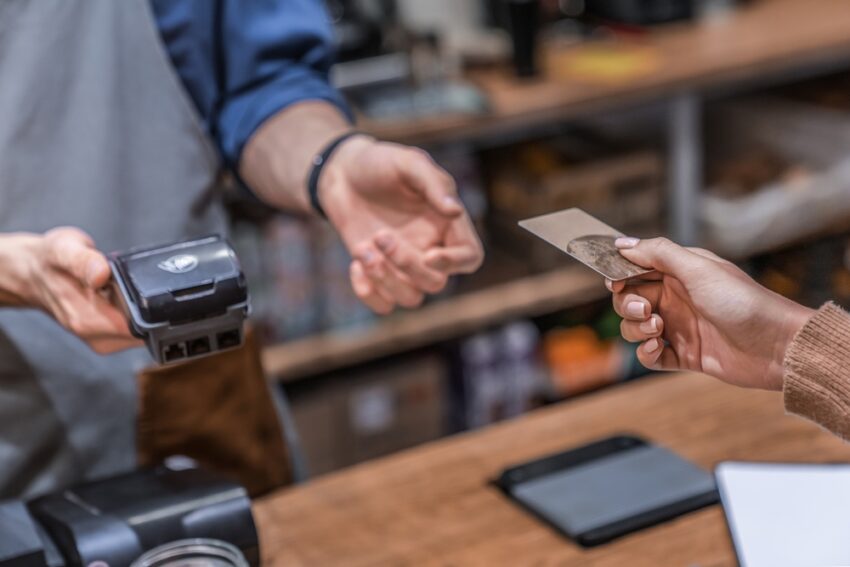Consumers and businesses across the United Kingdom have welcomed the options provided by digital payments. From card-swiping to making purchases with mobile wallets or signing up for subscription-based services, making payments has become faster, easier and more embedded.
For businesses, maintaining the pace of these behaviors is no longer optional; it's mandatory.
To stay competitive and maintain trust, businesses incorporate preferred customer payments into their financial offerings. With digital payments becoming the norm, this change is being embraced by all sectors of the UK, including the iGaming industry.
iGaming and the digital economy
At a glance, we can see how the iGaming industry is changing UK business with a variety of digital payment methods. Users can seamlessly connect with entertainment and gaming sites using digital payment structures. For players who want to engage safely, there is a wide selection of UK casino sites that offer regulated venues that combine secure payment systems, open regulatory oversight and engaging gameplay. Players are allowed free spins and unique bonuses without requiring any initial wager.
Digital spending in iGaming goes beyond simple transactions. Clients' funds are held in secure accounts and they can make withdrawals almost instantly. There are a variety of secure deposit and withdrawal methods, from e-wallets to payments through Apple Pay, Skrill and PayPal.
Mobile and contactless payments
Technology has reorganized the convenience of how we can make payments digitally, online or in person. In the past, payments could be made by tapping your bank card on an EFT device. Google Pay now offers the same method via cell phone or smartwatch. Such devices allow consumers to make fast, secure transactions without the need for cash.
Apple Pay has drastically changed the way iOS users conduct monetary transactions. Instead of keeping card details directly on the device, Apple Pay generates a unique device identifier and single-use transaction code for each payment. This approach dramatically reduces the possibility of interception of sensitive data during deposits or in-app transactions.
connecting people
Lightning-fast internet and mobile connectivity across the UK has played a major role in accelerating digital spending. With super-fast broadband now reaching most areas and 5G coverage expanding rapidly, consumers can make payments, shop online and manage their finances with ease and confidence. This level of connectivity has made transacting digitally more attractive and has connected businesses to people as far away as the UK.
financial technology
Blockchain and Cryptocurrency Technology
are becoming increasingly relevant to the digital fabric of the UK economy. Blockchain and cryptocurrency have added another layer to the way people in the UK spend and manage money. While traditional payment methods still exist in the financial ecosystem, digital payment solutions like crypto provide faster, more transparent, and secure transactions than traditional methods. Blockchain strictly ensures that payments are traceable and tamper-proof, while crypto wallets and tokenized assets provide flexibility for online purchases.
Encryption and security of user data
Strong encryption ensures that intercepted data cannot be accessed. End-to-end encryption for transactions and communications keeps sensitive information secure. Using a VPN or privacy-focused tools helps hide digital footprints. Emerging privacy technologies such as zero-knowledge proofs enable verification of transactions without disclosing confidential data. Privacy should be a basic expectation, not an optional extra.
In the UK, compliance with data protection laws such as the General Data Protection Regulation (GDPR) is a standard practice requirement for any business operating online. Transparency is key. The law requires sites to obtain explicit consent for the use of information and give customers the right to access or delete their data.
A defining factor is that users have control over their data. Modern consumers value transparency and want to know where their information goes. Offering clear privacy settings and visible security measures assures users that their identity and spending activity is secure. Businesses that communicate openly about their security standards gain a competitive advantage, as confidence directly impacts digital spending habits.
Cross-platform integration and convenience
UK shoppers frequently switch between mobile phones, tablets and desktop computers in the expectation of constant access and functionality. Cross-platform synchronization should occur on secure servers, ideally supported by SSL certificates and multi-factor authentication to prevent unauthorized access.
In iGaming, cross-platform integration allows players to continue games on different devices, synchronize wallets, and track rewards in real time. Customers are advised to look for official mobile apps available through trusted sources like Google Play, as these undergo security checks before being listed.
E-commerce is driving adoption of digital payments
Online platforms rely on fast, secure and seamless payment solutions to complete transactions, making digital wallets, contactless cards and mobile payment apps increasingly common. Consumers are sensitive to the concept of purchasing goods and services online, and businesses are investing in integrated payment systems that support multiple digital methods. In addition to basic credit and debit card options, many sites now support digital wallets, buy now-pay later plans, mobile banking apps, and cryptocurrency payments.
The future of digital commerce in the UK
E-commerce, mobile payments, subscriptions, and iGaming are not isolated trends; They collectively shape a new consumer landscape. UK businesses that embrace digital tools, prioritize security and focus on consumer experience are likely to outperform their competitors.
New concepts of digital interaction are evolving every day. Crypto and blockchain are setting the standard, while NFTs have entered the market and are also becoming popular as a means of transaction.
conclusion
Britain ranks fourth out of 132 countries as a technology-advanced country. They have many advanced platforms that are a driving force behind the progress of digital financial advancements, and fast internet service throughout the UK can be identified as one of them. The UK e-commerce environment is changing rapidly due to convenience, technology and changing consumer trends.
The adoption of AI and data intelligence is also changing the way consumers manage money, and businesses respond by personalizing services to keep pace with demand. The UK complements the future of digital currency interactions by implementing laws that match the development of trustworthy practices and secure, risk-free engagement.









